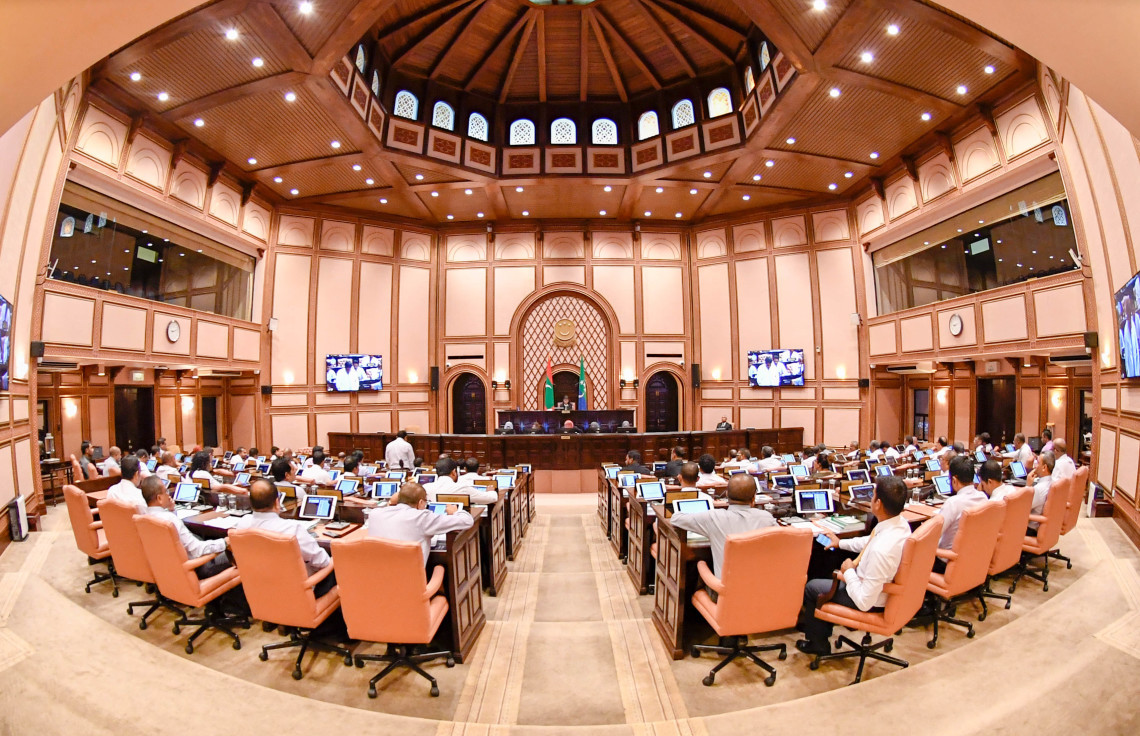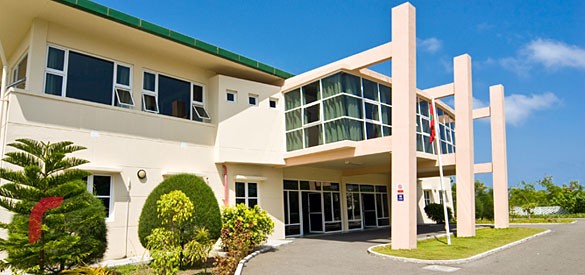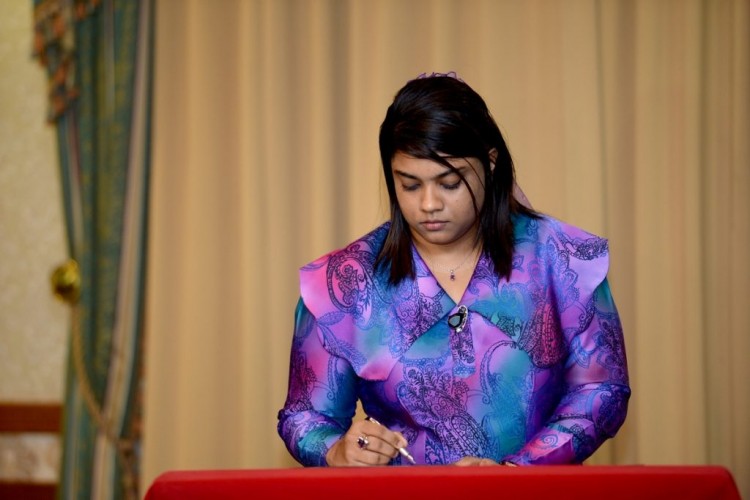Is there a correlation between gender quota in politics and population growth?
MP for Kelaa raised the question about whether gender quotas can affect birth rates


19th People\'s parliament of the Maldives in session
On December 15th last year, the 8th amendment to the Decentralization Act was ratified with provisions to reserve 33% of local government seats to women in an effort to achieve gender equality. While the amendments to the decentralization of administrative divisions were passed by the People’s Parliament on 5th December, the MP for Kelaa constituency, Ibrahim Shareef recently took to Twitter last Monday to ask a very interesting question.
His tweet reads “This is my personal opinion! Wouldn’t allocating seats for women in island and atoll councils hinder the country’s population growth?”
Understandably, there was a lot of backlash and criticism from the public following the tweet and a ton of jokes were made at the MP’s expense. In my personal opinion, and perhaps the opinion of countless others as well, there is absolutely no correlation between women’s participation in politics and the population growth.
Nevertheless, when asked for further comment bySun Onlinethe very next day, the MP explained that his tweet was based on research and studies he has read. Elaborating on his comment, he told the local news agency that marriages could be negatively affected if women became more active in the political sphere. He said that if women start increasingly participating in politics, it could be an obstacle for married couples to “mate” which will, in turn, affect the country’s birth rates. He also claimed that he fears that divorce rates may increase.
He further shared two articles with the reporter; the first titled“The motherhood trap: why are so many senior female politicians childless?”and a second titled“Why are divorce rates so high for MPs?”. He claimed that his comment was based on articles such as these.
On the same day, he took to Twitter again to share the former article in an attempt to defend his earlier comment. This move proved to be a huge blunder on the MP’s part as anyone who actually read the article found that said article contradicted the MP’s statement.
If the MP himself had read beyond the headline, he would have known that the article he had shared actually goes onto address sexist double-standards against female politicians as seen in his initial tweet. While the article stated that the most successful female politicians were not mothers and cited a study that found more female MP’s were childless compared to male MP’s, the author asserted that these facts reflect the barriers for women, especially mothers, to have a political career.
The author revealed that women were discouraged and systematically prevented from participating in politics, citing studies which found that employers regarded working fathers as stable and committed to their work as they have a family depending on them but viewed working mothers as unreliable and easily distracted for the same reason. Moreover, during the process of becoming a parent man have the advantage of not being physically required to put their career on hold. Hence, the author asserts that women are stuck in a “no-win” situation, where they are seen as lacking dedication if they have children or selfish if they choose to be childless and focus on progressing their career.
As for the second article shared by MP Ibrahim to support his viewpoint, it made no mention of gender differences in the divorces of MPs but simply stated that most MP’s are divorced. At no point does the article claim that marriages of female politicians suffered more than that of males. In fact, the article concluded that most MPs were divorced due to an imbalance in work-family priorities.
Considering the fact that Maldives has historically had high number of divorces, even holding the world record for the highest divorce rate in the world, MP Ibrahim's concern for the country's divorce rate is baseless and has no correlation with the political participation of women.
The MP’s statement is honestly surprising considering that he voted to pass the amendment to the Decentralization Act, raising the question of whether MDP members blindly follow the party’s decisions despite clearly not understanding the reasoning behind them.
MP Ibrahim’s frankly ignorant statement further proves the necessity of a gender quota. Sexist stereotypes are prevalent in our society and negatively affect women at home, at work and in public. These issues go ignored by governments comprising mostly of men, who are unaffected and therefore see no problem that needs to be attended to. Therefore, female representation is required in governance in order to ensure that women’s issues are addressed. There are currently four female MP’s in the Maldives parliament out of a total of 87 members. Likewise, as of December 2019, the Inter-Parliamentary Union has ranked the Maldives at 181 out of 187 countries when it comes to the amount of women in parliament.
Even from an economic or capitalistic point of view, it does not make sense to prevent approximately half the population from contributing to the country’s development and progress.
Those who claim that gender quotas are discriminatory against men or believe that it gives women achievements without merit are unaware of their male privilege and see equality as oppression when their privilege is taken away.
However, MP Ibrahim did go onto apologize for his remarks, stating that there is no doubt regarding the role of female empowerment in society’s progress. Therefore, let's not hold his comments against him by giving the benefit of the doubt and hoping that he has understood why gender quota is essential to the country’s development.





